Nghe An Rehabilitation Hospital: Effective treatment of trigeminal neuralgia
(Baonghean) - Along with treating diseases such as herniated disc, stroke, sciatica... and recovering from traumatic brain injury, after accidents... recently, Nghe An Rehabilitation Hospital has effectively treated many patients with trigeminal neuralgia.
Unforeseeable consequences of trigeminal neuralgia
The V nerve (number 5), also known as the trigeminal nerve, is one of the main nerve organs located on the face of each person. This nerve has three branches on each half of the face, distributed symmetrically.
The V nerve originates from the brain, follows the path in front of the ear and then reaches the face. From the three main branches, there are many small branches that divide in many directions. The three main branches of the V nerve (including the V1 branch: reaching the scalp, forehead, and around the eyes; the V2 branch: reaching the cheek area; the V3 branch: reaching the jaw area). The V nerve has the function of supporting muscle control, creating chewing movements, and controlling the production of saliva and tears.
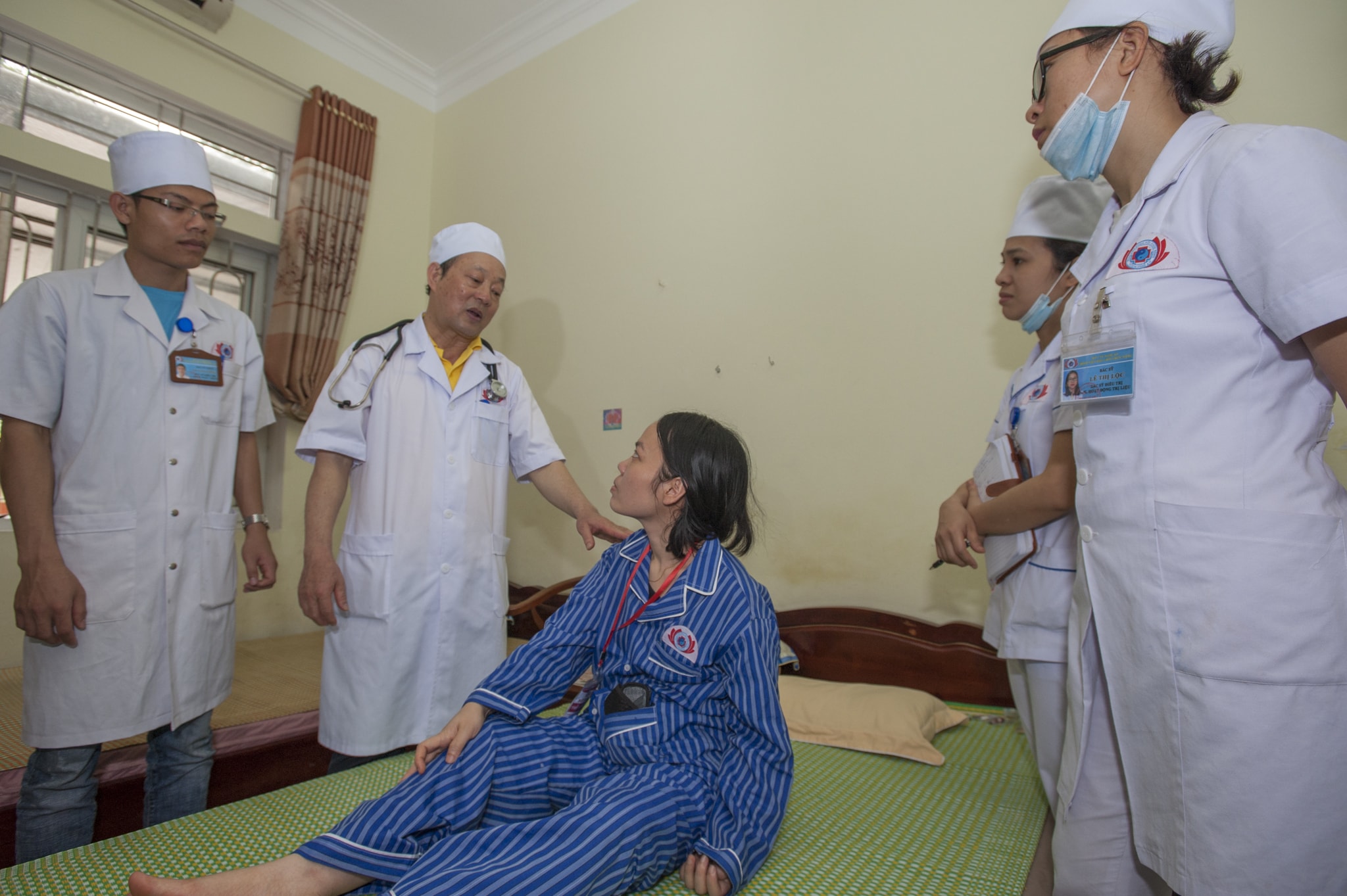 |
| Professor, Doctor Cao Minh Chau, former Head of the Department of Rehabilitation, Hanoi Medical University, General Secretary of the Vietnam Rehabilitation Association, guides treatment at Nghe An Rehabilitation Hospital. Photo: Thanh Cuong |
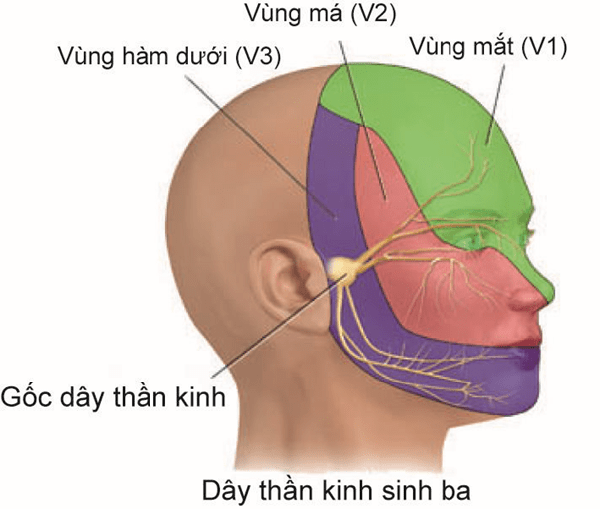 |
| Trigeminal neuralgia. Illustration |
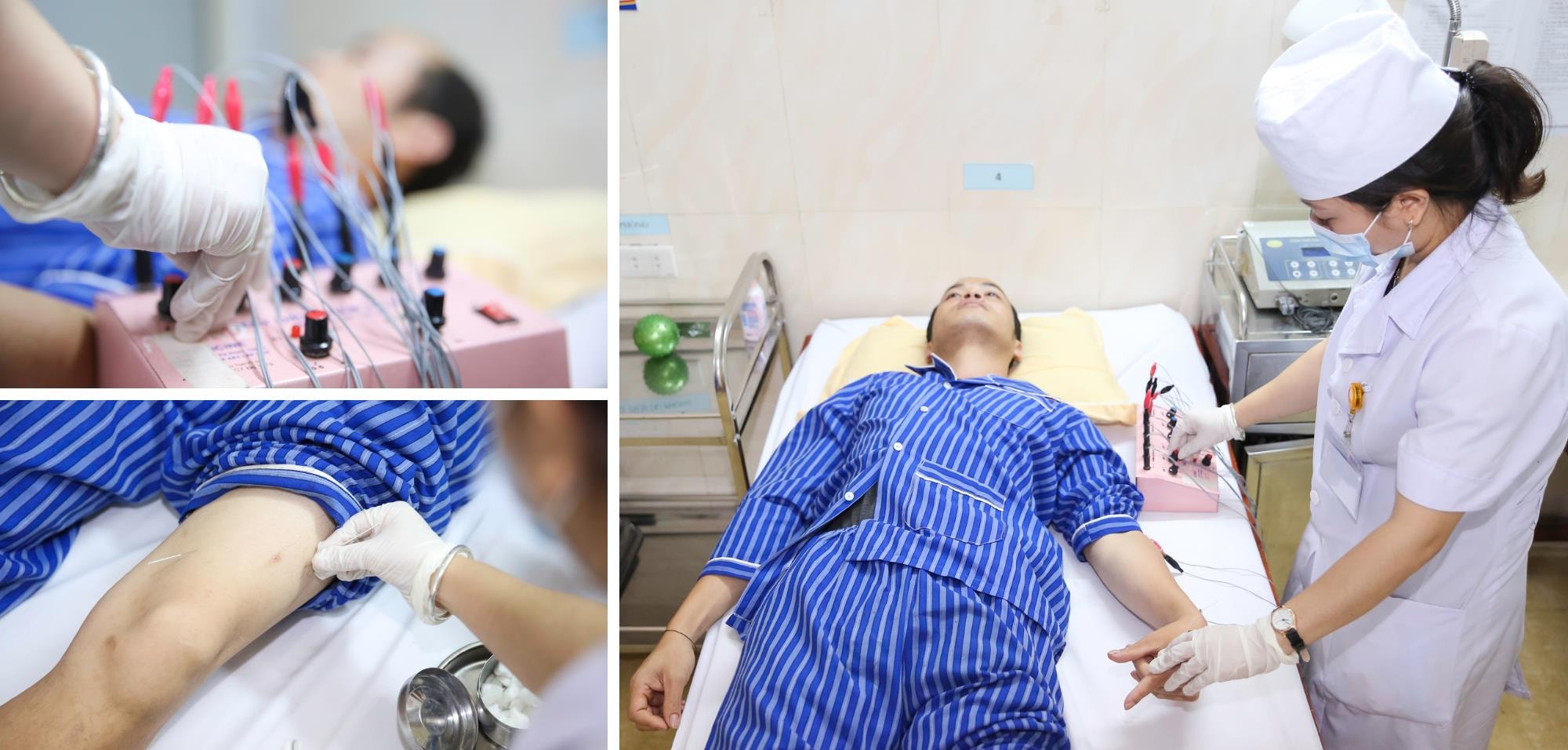 |
| Doctors and nurses treat patients at Nghe An Rehabilitation Hospital. Photo: Duc Anh |
Treatment methods
Recently, Nghe An Rehabilitation Hospital has received and treated many cases of patients with trigeminal neuralgia.
I had pain in my eyes, lower cheeks, lips and jaw. The pain came in waves every day, and it got worse and worse. I went to the doctor and was diagnosed with idiopathic trigeminal neuralgia and was given medication, but the pain only subsided for a while and then returned. I had difficulty eating and speaking because of the pain, so all activities in life became very tiring. Recently, I learned that the Rehabilitation Hospital was very effective in treating this disease, so I came here for treatment. After 1 week of being cared for by the doctors and nurses here, my condition showed signs of improvement. The pain was less frequent and the frequency of each attack was reduced. In particular, I no longer had pain when talking or eating, so my health gradually stabilized.
Recently, I learned that the Rehabilitation Hospital is very effective in treating this disease, so I came here for treatment. After 1 week of being cared for by the doctors and nurses here, my condition has shown signs of improvement. The pain has become less frequent, and the frequency of each attack has decreased. In particular, I no longer have pain when talking or eating, so my health has gradually stabilized."
Doctor Thai Thi Xuan - Director of Nghe An Rehabilitation Hospital said: "To effectively treat trigeminal neuralgia, the doctor will first diagnose trigeminal neuralgia mainly based on the patient's description of the pain, including: Pain nature: sudden and short-lived; Pain location: the areas on the face affected by the pain will help the doctor diagnose more easily; Pain onset circumstances: usually mild stimulation on both cheeks such as eating, talking.
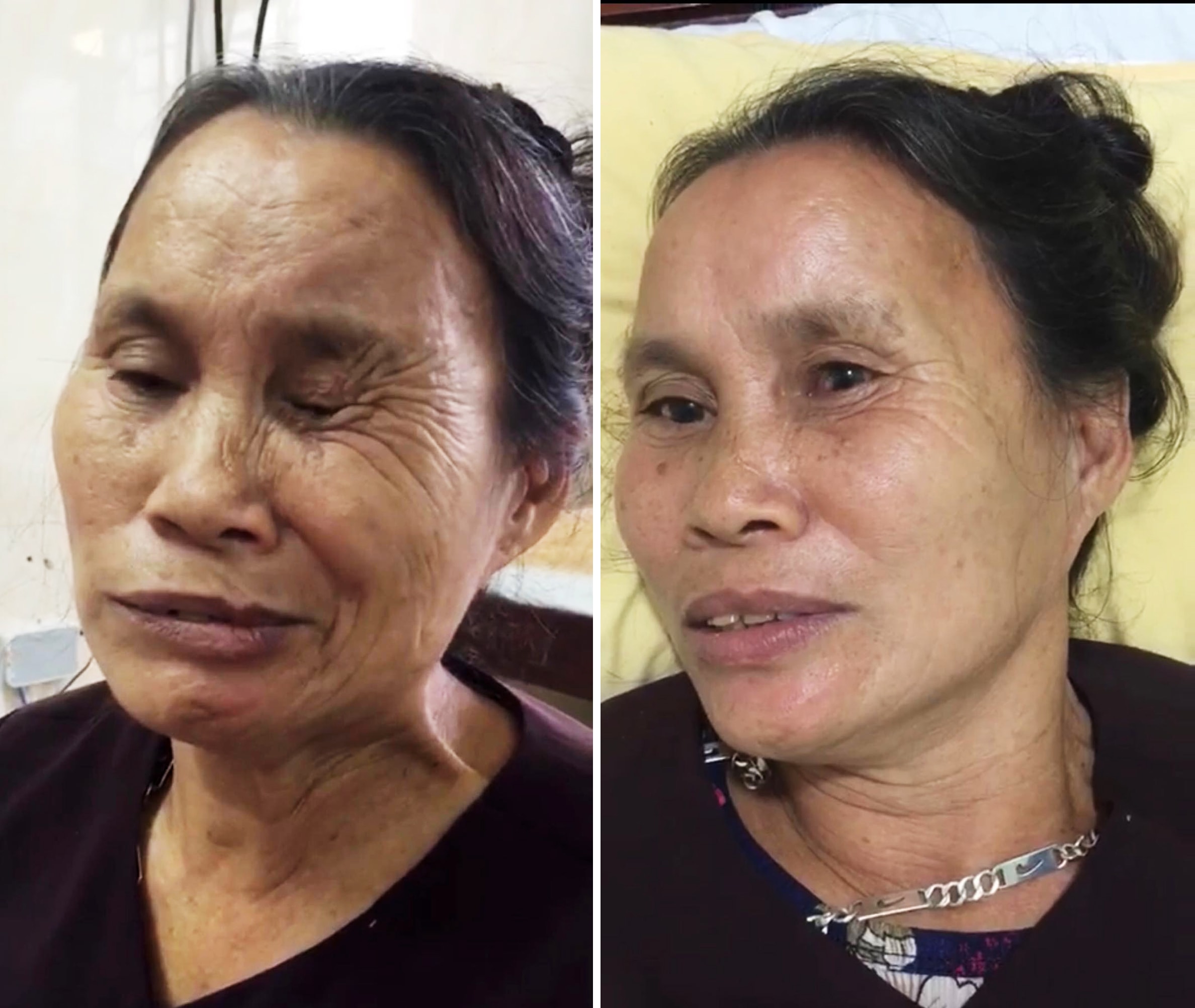 |
| Patients before and after treatment of the fifth cranial nerve. |
In some cases, your doctor may inject a dye into your bloodstream to see your arteries and veins more clearly. (MRI, or vascular MRI.) Facial pain can have many different causes, so it is important to get an initial diagnosis. Your doctor may want to do some additional tests to rule out other causes of your pain.
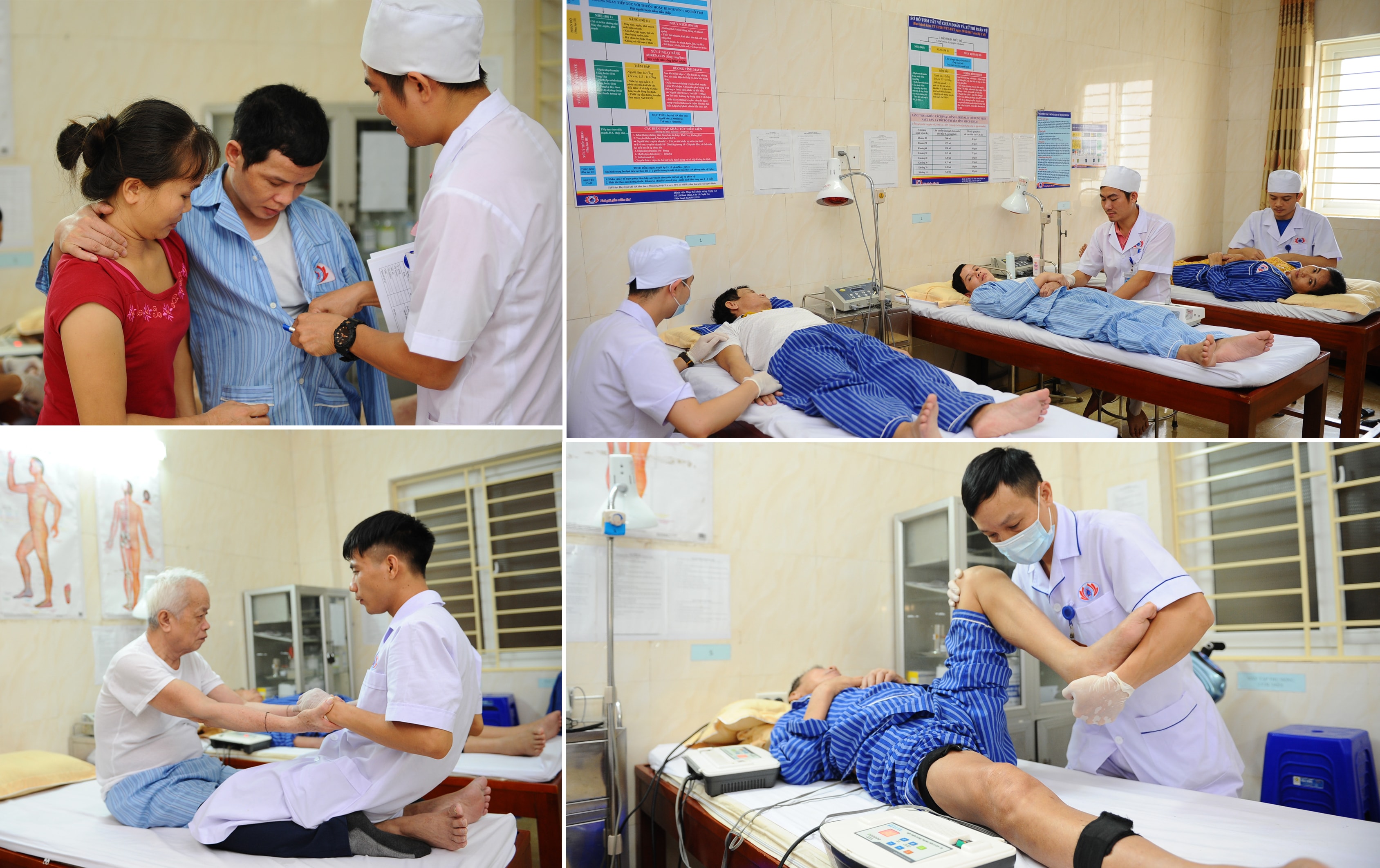 |
| In addition to treating trigeminal neuralgia, the hospital is currently treating diseases such as herniated discs, rehabilitation after traumatic brain injury, stroke, neurological diseases, bones, joints, autism in children... |
The most important thing is to detect the root cause by careful, meticulous clinical examination and experience. In general, if treated promptly and appropriately, trigeminal neuralgia often gives positive results and can be completely cured.
With the spirit: "All for patient satisfaction".
Is "Where patients place their trust".
The first “Green - Clean - Beautiful” Hospital - Hotel model in Nghe An.
Address: No. 220, Binh Minh Street, Cua Lo Town, Nghe An.
Clinic Phone: 02383.922.922
24/7 hotline: 02383.922.922
Hotline: 0966.251.414; 0912.002.210
Director's phone number: 0912.487.568.
